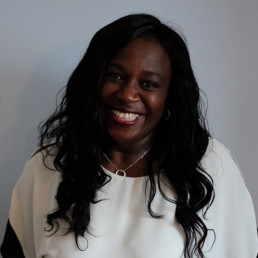
Written by Audrey Pantelis
Audrey Pantelis is an associate coach, consultant and trainer. She is a former Headteacher of a Special Educational Needs and Disabilities school and a current Diversity, Equity and Inclusion consultant and leadership coach.
We have lived and are living through tumultuous times. We have had to strengthen our resilience like never before. The world has changed, and we are having to change or potentially get left behind. As the world becomes more aware of the inequity of black and minority ethnic people and the lack of racial justice in many aspects of everyday life – we hear a lot about ensuring that we ‘have a seat at the table’. This is indeed progress – after generations of ‘peering in’ as the decisions that impacted black and minority ethnic people were made to them rather than with them or for them. However, I am reflecting on this concept and wondering whether our voices are actually being heard?
Getting to the table and ensuring that the seat is not only offered but taken has been both long and difficult and it continues to be, despite all the high-profile progress made during the past eighteen or so months. We also know that this struggle has been long fought for. It’s hard to know whether we should be pleased or whether we should feel justified – a bit of both maybe? Either way, one thing that I am sure of is that once you arrive at a longed-for destination, you should be able to look around and discuss what you can see without fear, hesitation or retribution. Is this the case as these improvements take place?
Once we have spoken – are our views really considered when decisions need to be made? It is hard to know. Relinquishing power and agency to those that you have once feared, hated or simply ignored is not easy – so it may be more palatable to be performative – being seen to be making changes ‘ticks the boxes’…. doesn’t it?
So how can we ensure that we are heard? That our voices matter and that they are kept in the mix when those key decisions need to be made? We need to remain mindful that shouting is not the only way that we are heard. The structures that have caused inequality will not magically ‘disappear’ and if there is a perceived threat to the status quo it is possible that the structures will be strengthened to ensure silence from those that want to speak.
“Although we all have the right to communicate, historic patterns of privilege, injustice and marginalization mean that we have inequitable access to the tools and resources necessary to fully exercise this right. Bottom line: no change in a communications strategy is complete without investments in communications and organizing infrastructure that address these inequities.”
~ Makani Themba, Higher Ground Change Strategies
In June 2020, we were saying ‘I can’t breathe’.
Are we saying in October 2021, ‘I can’t speak’?

